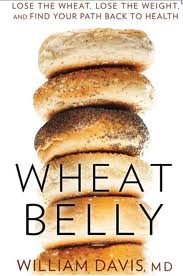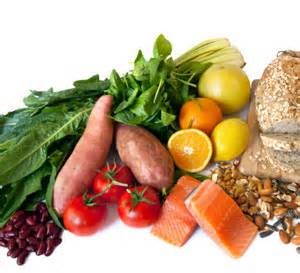In the world we live in, we are all a bit phobic about our carbohydrates. Some of rightfully so, and some is unwarranted. We need not be phobic and scared of carbohydrates, as they do have a place in our nutrient and food intake. We just need to be a bit more choosy about which carbohydrates we choose as all carbohydrates are not created equal.
First, what are carbohydrates? In food science and in many informal contexts, the term carbohydrate often  means any food that is particularly rich in the complex carbohydrate starch (such as cereals, bread and pasta) or simple carbohydrates, such as sugar (found in candy, jams, and desserts). Here is a list of food categories I use called best food choices per category.2. It makes it a bit easily identify which food groups are carbs.
means any food that is particularly rich in the complex carbohydrate starch (such as cereals, bread and pasta) or simple carbohydrates, such as sugar (found in candy, jams, and desserts). Here is a list of food categories I use called best food choices per category.2. It makes it a bit easily identify which food groups are carbs.
From Wikipedia:
“A carbohydrate is a biological molecule consisting of carbon (C), hydrogen(H) and oxygen (O) atoms, usually with a hydrogen…
The term is most common in biochemistry, where it is a synonym of saccharide, a group that includes sugars, starch, and cellulose. The saccharides are divided into four chemical groups: monosaccharides, disaccharides, oligosaccharides, and polysaccharides. In general, the monosaccharides and disaccharides, which are smalle(lower molecular weight) carbohydrates, are commonly referred to as sugars.[6] The word saccharide comes from the Greek word σάκχαρον (sákkharon), meaning “sugar.”
The simpler the sugar, the quicker it gets into the blood stream. The more processed a food is, the more simple sugars are typically included. The more sugars you consume, the more sugars you crave, the more calories you eat per day. Typically, high sugar foods have little nutrients but plenty of calories. This is another reason why all carbohydrates are not created equal – they can include different kinds of sugars and starches which either break down quickly or slowly.
The fear we have of carbohydrates is based on mainly the grain category, and gaining weight.
Yes, wheat can  make you gain weight especially in the belly. (Wheat Belly book) Wheat combined with sugar (both carbs) can trigger food cravings for more wheat and more sugar (ever eat just one cookie?? or a spoonful of pasta?)
make you gain weight especially in the belly. (Wheat Belly book) Wheat combined with sugar (both carbs) can trigger food cravings for more wheat and more sugar (ever eat just one cookie?? or a spoonful of pasta?)
There different categories of carbohydrates which include grains, fruit, root vegetables and legumes (dried beans). Based on a certification program I did with First Line Therapy, servings of grains should be limited to 1, maybe 2 servings per day for most people, 1-3 fruits, 1-2 servings of root vegetables, and 1-2 servings of legumes. This list does not include sugar based drinks (soda, juice, sweet tea, etc) or other sweeteners like honey, maple syrup or corn syrup. These are also carbohydrates, but they are not really the food based carbohydrates which want to be consuming.
Real food carbohydrates do not react the same as processed food carbohydrates. In most real food, the fruit, the root vegetable, the whole grain – they all have naturally occurring fiber in them that helps to slow the absorption of the natural sugars. An apple has fiber in it where processed apple juice does not. A fruit and nut bar you make at home with dates, flax and whole oats or quinoa will have fiber to slow the absorption of the sugars. It will also be sweet enough without adding sugar or honey. The store bought varieties typically have sugar as the first ingredient! Then take out the natural fiber, but add some cheap fiber back in later in processing and the store bought bars are mostly sugar! Even a Fiber One bar is basically a glorified candy bar with fiber. Can you see how all carbohydrates cannot be all the same?
What is the amount of carbohydrates we should be consuming per day? Well, the varies depending on the person and the type of activities they do or if they exercise. For most, take you weight in pounds, divide by 2.2 to convert to kg….then eat 2-4 grams of carbohydrates per kg of body weight. If you weigh 140 pounds, this means (140/2.2= 64; 64x 4= 254 g) you can eat 127-254 grams of carbohydrate per day.
1 cookie is about 25-35 g depending on size,
1/2 cup of oatmeal is 27 grams,
an apple or pear is 20-25 grams,
1/2 cup of soda is 28 grams (all sugar),
1/2 cup of sweet potato is 20 grams,
1/2 cup of pinto beans is 22 grams of carbohydrates per serving.
Divide this by 5 meals, and it is 25-50 grams per meal generally which is 1/2 cup for most per meal of any carbohydrate (more for males or if exercising more than an hour per day). Drink 8 oz of soda, and you are almost past that meal allotment for carbs!
Note: you can use this link to get general idea of carbs/ cal per fruit or vegetable food: http://www.weightlossforall.com/free-food-calorie-counter.htm
You can also calculate the amount of carbs per day based on caloric intake per day. Use 30-45% of calories per day to be your goal for carbohydrate intake. If on. 1400 cal diet, this means 1400 x 30% = 420 calories/ 4 cals per g= 105 grams of carbs.
If on 2000 calorie plan, you can have 150 grams per day. Divide by 5 meals = 30 grams per meal. So choose your carbohydrates wisely based on your desired intake, as all carbohydrates are not created equal, and eating more simple carbs makes for very little food intake!
As Dr Hyman wrote in his blog posthttp://drhyman.com/blog/2014/04/10/calories-dont-matter, 100 calories of broccoli are not the same as 100 calories of soda. He was referring to just calories but it is still the same with just carbohydrates. All carbs are not created equal. Change the types of carbohydrates, and the amount per day you consume to less simple sugars, and more real food options. Choose less grains, less cookies, less or no soda and choose more root vegetables, whole fruits or legumes.